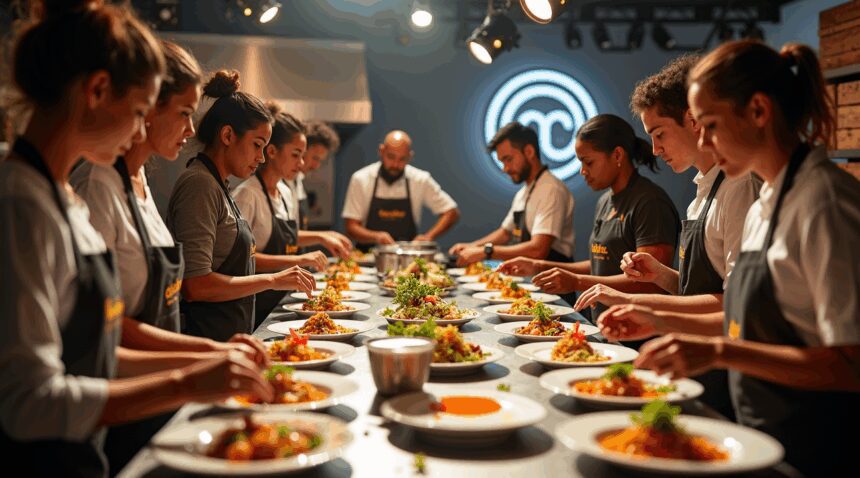MasterChef Canada’s casting directors are actively seeking passionate home cooks with both culinary talent and compelling personal narratives to audition for the 2025/26 season, with applications closing on November 17, 2024.
Key Takeaways
- Personal storytelling and cultural heritage are as important as cooking skills – Contestants who creatively incorporate meaningful narratives and unique backgrounds into their dishes often resonate more with judges than those relying solely on culinary techniques.
- The new Dynamic Duos format requires strong collaboration skills – Season 15 introduces team-based challenges, demanding high levels of communication, adaptability, leadership, and conflict resolution alongside top-notch food execution.
- Signature audition dishes must reflect authentic culinary identity – Successful candidates present dishes that tell their personal story through unique ingredient combinations and thoughtful technique, offering more than just great flavor.
- Technical mastery under pressure separates amateurs from competitors – Knife handling, sauce-making, pastry techniques, protein preparation, and mental resilience are all essential during the highly intense challenges featured in the competition.
- Competition success leads to significant career opportunities – Winners can secure prizes of up to $250,000 in the Dynamic Duos format, along with cookbook contracts, media appearances, restaurant ventures, and long-term culinary industry connections.
For those interested in applying, visit the official MasterChef Canada site for full details on the application process.
From Amateur Cook to National Television: The Competitive Casting Process
MasterChef Canada’s casting directors are actively searching for the next wave of culinary talent for their 2025/26 season, creating an opportunity that transforms everyday home cooks into television personalities. The application deadline of November 17, 2024, marks a crucial milestone for aspiring contestants who dream of competing in one of television’s most prestigious cooking competitions.
What Casting Directors Actually Look For
Casting teams don’t simply select the best cooks who apply. Instead, they focus on finding individuals who possess a compelling combination of culinary skill, personal narrative, and television presence. Contestants come from remarkably diverse backgrounds—from working parents juggling family responsibilities to career professionals pursuing their culinary passion as a side interest.
The selection process emphasizes several key qualities that separate successful applicants from the thousands who don’t make it past the initial screening:
- Innovation – presenting familiar ingredients in unexpected ways or using techniques that showcase cultural heritage.
- Personal storytelling – sharing experiences of overcoming challenges or representing unique perspectives in the culinary world.
- On-camera presence – conveying energy, authenticity, and connection with potential audiences.
Personal stories matter just as much as knife skills, since television audiences connect with contestants who have unique and heartfelt journeys.
Standing Out in a Crowded Field
Smart applicants understand that technical proficiency alone won’t guarantee a spot on the show. The most successful contestants often display passion that extends beyond basic cooking abilities, demonstrating knowledge about food science, cultural traditions, or innovative flavor combinations that reflect their personal journey.
Regional diversity also influences casting decisions, as producers aim to represent various Canadian communities and cooking traditions. This approach creates opportunities for home cooks who might feel their local specialties or family recipes don’t fit mainstream culinary trends. Culinary diversity has become increasingly important in modern cooking competitions.
Potential contestants should focus on developing their signature style while maintaining authenticity in their cooking approach. Casting directors can quickly identify contestants who try to mimic popular television personalities rather than showcasing their genuine culinary voice. The application process rewards home cooks who demonstrate confidence in their abilities while remaining humble about areas where they can grow.
Successful applicants typically submit applications that highlight specific cooking achievements, such as:
- Mastering a complex family recipe passed down through generations.
- Creating fusion dishes that reflect a multicultural background.
- Developing techniques through years of self-taught practice or mentorship.
The competition attracts individuals who view cooking as more than just meal preparation—they see it as creative expression and cultural preservation.
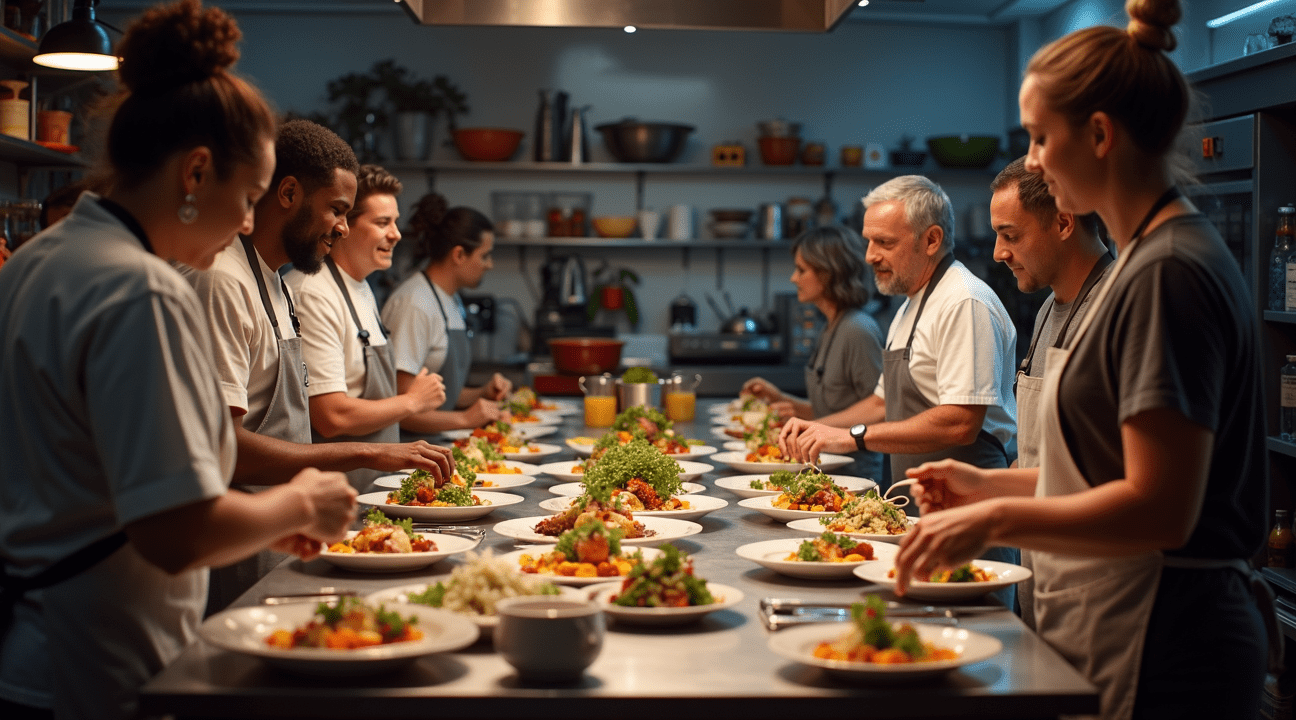
The Signature Dish That Changes Everything: Standing Out in Auditions
The audition phase represents the make-or-break moment where home cooks must distill their entire culinary identity into a single dish. Contestants who advance understand that judges aren’t simply tasting food—they’re evaluating the cook’s potential for growth, creativity, and passion for culinary excellence.
Crafting Your Culinary Identity Through Food
Successful audition dishes tell a story that reflects the contestant’s background, influences, and cooking philosophy. Judges consistently gravitate toward contestants who demonstrate genuine love for food rather than those who merely follow recipes. This means incorporating personal touches that reveal cultural heritage, travel experiences, or family traditions. A dish becomes memorable when it represents something deeper than technical execution.
The most impressive contestants present dishes that combine unexpected elements while maintaining balance and harmony. These cooks understand that surprise doesn’t mean shock—instead, they create pleasant revelations through thoughtful ingredient pairings and technique applications. Consider how culinary maestros blend exotic ingredients with familiar foundations to create approachable yet exciting dishes.
Advanced Techniques and Cultural Fusion
Home cooks who impress judges master techniques that elevate simple ingredients into restaurant-quality presentations. This might involve perfect knife skills, advanced sauce-making, or understanding how to manipulate textures through various cooking methods. However, technique alone doesn’t guarantee success—the application must serve the dish’s overall vision.
Cultural fusion represents another pathway to distinction, particularly when executed with authenticity and respect. Contestants who successfully blend flavors from multiple culinary traditions demonstrate sophisticated palate development and cultural awareness. These approaches work best when cooks draw from personal experiences rather than attempting trendy combinations without understanding. For example:
- Someone with Korean heritage might reimagine traditional kimchi techniques in unexpected applications.
- A contestant with Mediterranean roots might incorporate those flavor profiles into dishes from entirely different regions.
Creative reinterpretations of classic dishes also capture judges’ attention, especially when the transformation reveals new possibilities while honoring the original’s essence. This approach requires deep understanding of why certain dishes work, allowing cooks to deconstruct and rebuild them with fresh perspectives. The key lies in maintaining the soul of the original while adding personal innovation.
Unique ingredients serve as another differentiator, but only when used purposefully rather than for novelty’s sake. Contestants who succeed with unusual ingredients demonstrate how these elements enhance rather than overshadow the dish’s core concept. They explain their choices with confidence, showing judges that every component serves a specific purpose in achieving their culinary vision.
The presentation aspect cannot be overlooked, as visual impact creates the first impression before any tasting begins. Successful contestants understand that plating techniques should complement rather than complicate their flavors. Clean, purposeful presentation that highlights the dish’s best elements typically outperforms elaborate garnishes that distract from the food itself.
Judges also respond positively to contestants who show strong culinary aspirations beyond the competition. Those who articulate clear goals about their cooking journey and demonstrate motivation to push their own boundaries often advance even when their dishes aren’t perfect. The combination of ambition, teachability, and genuine passion for improvement creates the foundation for compelling television and successful competition performance.
Understanding that audition success depends on more than cooking ability helps contestants prepare effectively. The dish must represent their unique perspective while demonstrating technical competence and creative thinking. Most importantly, it should reflect the contestant’s authentic relationship with food, showing judges a cook worth following throughout the competition’s challenges.
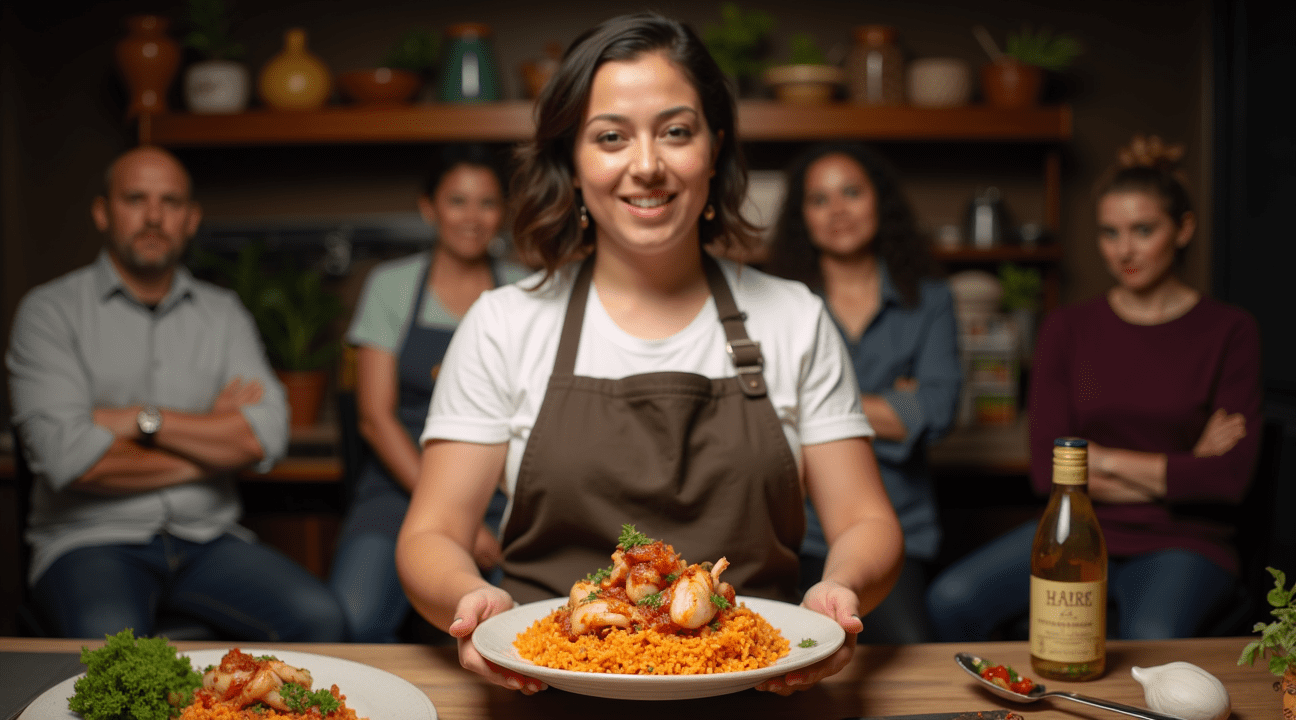
Mastering High-Pressure Challenges and Technical Skills
The Pressure Test stands as the ultimate crucible where home cooks either rise to greatness or crumble under intense scrutiny. I’ve watched countless contestants face these challenges, and those who succeed share remarkable composure alongside fundamental technical abilities that separate amateur enthusiasm from culinary competence.
Time constraints transform even simple dishes into potential disasters. Contestants must execute complex recipes while managing multiple components simultaneously, often working with ingredients they’ve never encountered before. The clock becomes an unforgiving adversary that reveals true cooking instincts versus mere recipe-following abilities.
Essential Technical Skills That Judges Demand
Successful contestants master several core competencies that judges scrutinize with hawk-like attention:
- Knife handling and butchery techniques form the foundation of professional cooking, requiring precision cuts and proper protein breakdown
- Sauce-making demonstrates understanding of emulsification, reduction, and flavor balance that elevates any dish
- Pastry work challenges contestants with temperature-sensitive techniques and exact measurements
- Roasting vegetables properly showcases ability to develop natural flavors through proper heat application
- Pan-cooking proteins tests temperature control and timing for perfect doneness
- Making fresh pasta reveals dough handling skills and texture awareness
- Baking desserts demands scientific precision and understanding of chemical reactions
Those who excel understand that consistency matters more than occasional brilliance. Gordon Ramsay and fellow judges expect every plate to meet professional standards, regardless of pressure or unfamiliarity. Contestants who adapt quickly to unexpected ingredient swaps or equipment failures demonstrate the flexibility that professional kitchens require.
Feedback reception becomes equally critical during these high-stakes moments. I’ve observed that contestants who listen actively, ask clarifying questions, and implement suggestions immediately often advance further than those who become defensive or overwhelmed. The ability to maintain professionalism while receiving critique under intense pressure mirrors the demanding environment of professional culinary careers.
Technical skills alone don’t guarantee success without mental fortitude. Contestants who breathe deeply, organize their workspace efficiently, and maintain clear thinking despite mounting pressure consistently produce better results than those who panic. This combination of practical ability and psychological resilience creates the foundation for memorable MasterChef performances that judges remember long after the cameras stop rolling.

Team Dynamics and New Competition Formats
Season 15 of MasterChef introduces a groundbreaking twist that transforms how home cooks approach competition. The ‘Dynamic Duos’ format pairs contestants together, creating an entirely different challenge that goes beyond individual culinary skills. I’ve witnessed how this format pushes home cooks to excel in ways they never anticipated, combining their cooking prowess with essential interpersonal abilities.
Mastering Collaboration Under Pressure
The new team-based challenges require contestants to demonstrate multiple competencies simultaneously. Home cooks must showcase these critical skills to succeed in the Dynamic Duos format:
- Leadership abilities when directing kitchen operations and making split-second decisions
- Clear communication to coordinate complex dishes with their partner
- Adaptability when their cooking style clashes with their teammate’s approach
- Conflict resolution to overcome disagreements without compromising dish quality
- Time management coordination to ensure both team members contribute effectively
These partnership challenges fundamentally change how contestants strategize their approach. Rather than relying solely on technical cooking skills, home cooks must learn to read their partner’s strengths and weaknesses quickly. I’ve observed how successful duos develop an almost telepathic understanding, finishing each other’s tasks and anticipating needs before they’re voiced.
The pressure situations that emerge from team competition create authentic stress tests for contestants. When two people share responsibility for a single dish, the stakes become exponentially higher. Each partner’s reputation depends not only on their own performance but also on their teammate’s execution and decision-making abilities.
Communication becomes the secret weapon that separates winning teams from struggling pairs. Home cooks who master the art of clear, concise direction while remaining open to their partner’s input consistently outperform those who try to dominate or completely defer control. The most impressive contestants learn to negotiate rapidly, making compromises that enhance rather than weaken their final presentation.
The Dynamic Duos format also reveals how different cooking philosophies can either complement or clash spectacularly. Some partnerships thrive when combining innovative techniques with traditional approaches, while others struggle to find common ground between vastly different culinary backgrounds. Smart contestants quickly identify their partner’s specialty areas and adjust their own contributions accordingly, creating seamless collaboration that produces restaurant-quality results under intense time constraints.
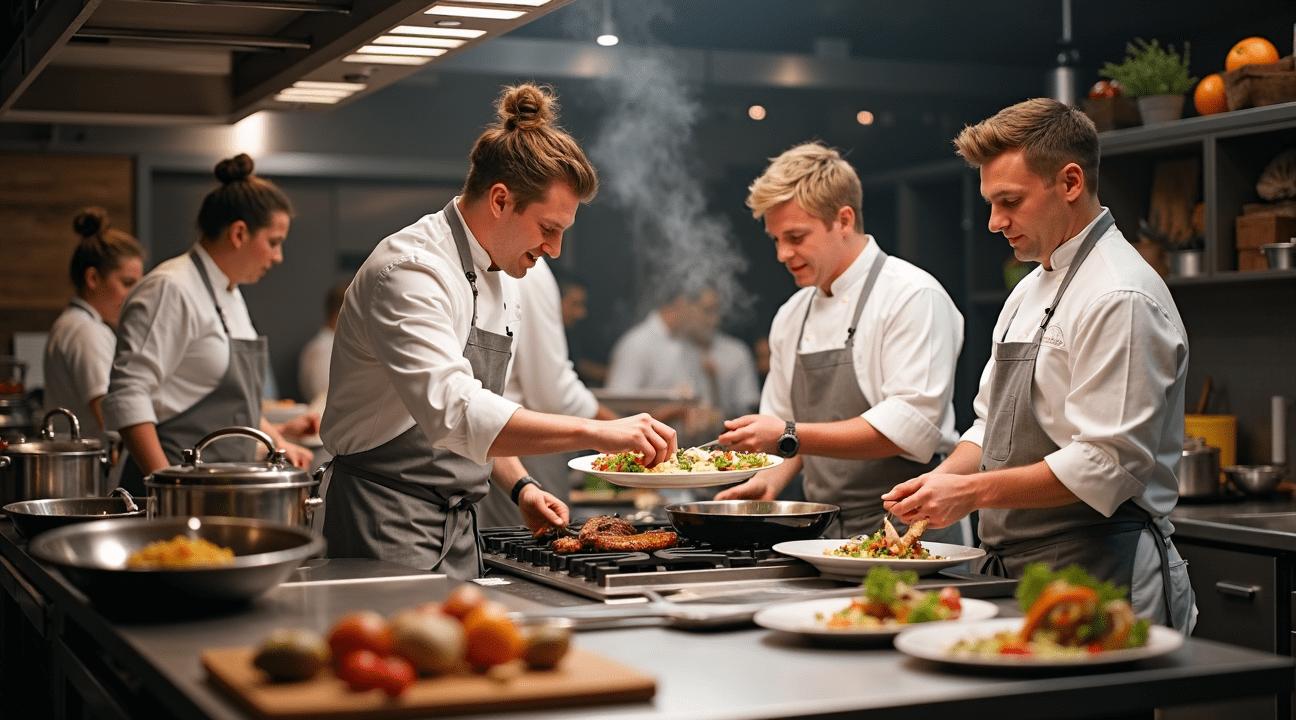
The Power of Personal Stories and Cultural Connection
I’ve observed that Master Chef contestants who weave personal narratives into their culinary presentations often capture the judges’ attention in profound ways. The competition isn’t simply about technical prowess – it’s about creating an emotional bridge between the cook and those tasting their food. When home cooks share the stories behind their dishes, they transform a simple plate into a window into their soul.
Crafting Compelling Culinary Narratives
Personal storytelling elevates a dish from good to unforgettable. I notice that contestants who can articulate why they chose specific ingredients or techniques often score higher than those who focus solely on flavors. A contestant might prepare a simple pasta dish, but when they explain how their grandmother taught them the recipe during difficult times, the judges taste more than marinara sauce – they experience heritage, love, and resilience.
Cultural backgrounds provide rich material for these narratives. I’ve seen contestants draw from their Mexican heritage to create elevated street food, or transform traditional Indian spices into contemporary presentations. Culinary exploration of different cultures often resonates deeply with judges who appreciate authenticity and innovation working in harmony.
The key lies in connecting personal experiences to culinary choices. Contestants who can explain why they added cardamom to a dessert because it reminds them of their mother’s kitchen, or why they chose duck because it represents celebration in their family, create lasting impressions. These stories help judges understand the intention behind each component on the plate.
Balancing Emotion with Execution
Emotional connection doesn’t excuse poor execution, but it can elevate great execution into something extraordinary. I’ve witnessed talented home cooks stumble because they focused entirely on technical aspects while forgetting to share their passion. Conversely, contestants with compelling stories but weak dishes also fall short. The magic happens when both elements align perfectly.
Smart contestants practice their storytelling just as intensively as their cooking techniques. They develop concise ways to explain their dish’s significance without overwhelming the judges with lengthy explanations. Professional chefs understand that timing matters in both cooking and communication – the same principle applies to competition cooking.
Cultural authenticity paired with modern presentation often wins judges over. Contestants who honor traditional techniques while adding contemporary flair demonstrate both respect for their heritage and culinary growth. This approach shows judges that the cook understands their roots while possessing the skills to evolve and adapt.
I find that contestants who connect their culinary journey to their life experiences create the most memorable moments. Perhaps they learned to cook after losing a parent, or they discovered their passion while traveling abroad. These personal revelations help judges understand the contestant’s motivation and dedication to cooking. Even professional chefs like Gordon Ramsay have overcome significant challenges in their journeys, making them appreciate contestants who demonstrate similar resilience.
The strongest contestants understand that Master Chef judges want to taste their personality on the plate. Technical skill gets you through the early rounds, but personal connection and storytelling ability often determine who reaches the finale. Every dish becomes an opportunity to share a piece of yourself with the judges, creating bonds that extend beyond the competition kitchen.
Successful home cooks on Master Chef master the art of vulnerability. They’re willing to share difficult periods in their lives, family traditions, or struggles that led them to cooking. This openness creates genuine moments that judges remember long after tasting ends. Unique cooking methods combined with personal stories often create the most impactful presentations.
Cultural diversity enriches the competition experience for both contestants and judges. When cooks bring authentic elements from their backgrounds while demonstrating technical growth, they create dishes that tell complete stories. These narratives transform simple ingredients into powerful expressions of identity, heritage, and aspiration.
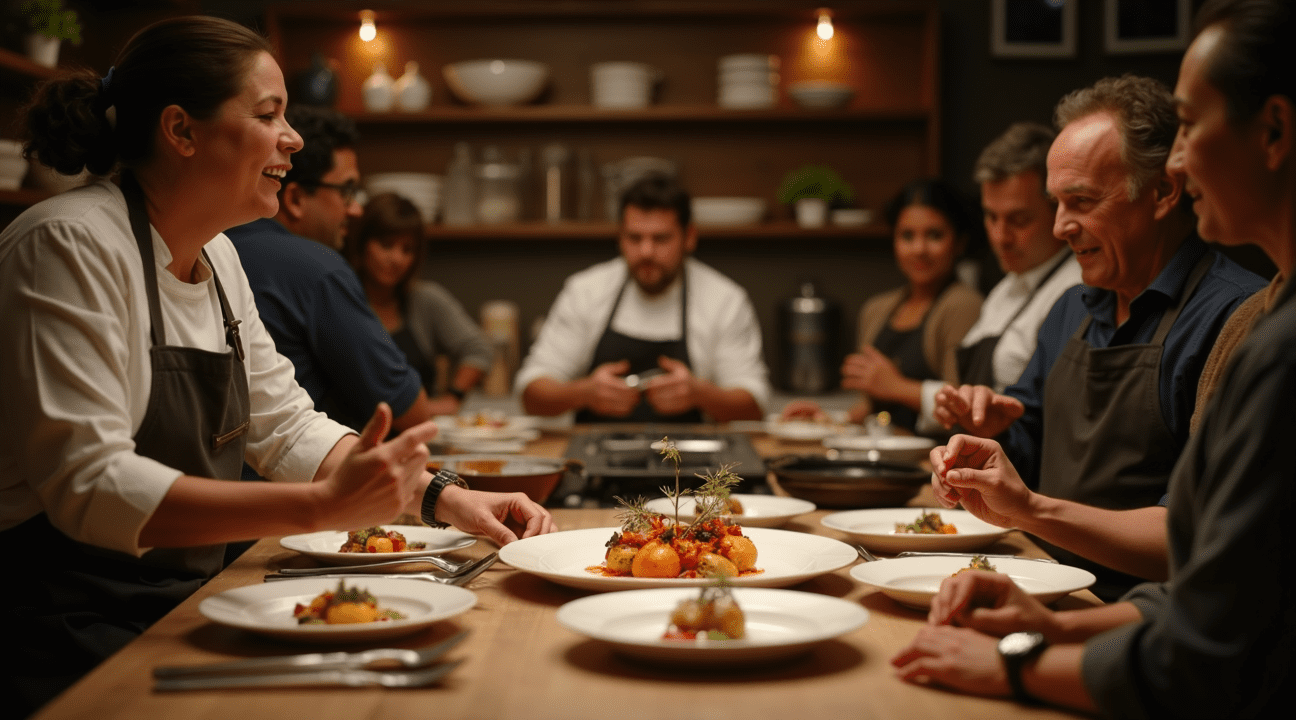
Life-Changing Rewards and Career Opportunities
The financial benefits alone make MasterChef worth pursuing for ambitious home cooks. Winners of MasterChef Canada walk away with a substantial $100,000 cash prize, providing crucial seed money for launching culinary ventures. The stakes climb even higher in special formats like the US ‘Dynamic Duos’ season, where winning teams split an impressive $250,000 alongside the coveted MasterChef trophy.
Post-Competition Success Stories
Former contestants consistently transform their MasterChef experience into thriving culinary careers. Mary Berg exemplifies this trajectory perfectly—after winning MasterChef Canada, she leveraged her victory into cookbook deals, television hosting opportunities, and her own cooking show. Similarly, Tiffany Derry used her MasterChef platform as a launching pad, eventually becoming a judge herself while building a restaurant empire that includes multiple successful establishments.
The competition’s massive viewership creates unparalleled exposure for contestants. MasterChef US attracted an average of 4.3 million total viewers during Summer 2024, making it FOX’s most-watched summer program. This level of visibility opens doors that remain closed to most home cooks. Contestants gain access to industry connections, media opportunities, and brand partnerships that can sustain careers for years beyond their competition appearance.
Beyond the immediate cash prizes, MasterChef alumni often secure:
- Cookbook deals
- Restaurant partnerships
- Television appearances
- Catering businesses
- Food blogs
- YouTube channels
They capitalize on their newfound recognition to launch successful culinary ventures across a variety of platforms.
The competition also provides invaluable professional training that money can’t buy. Contestants work alongside world-renowned chefs, learn advanced techniques, and gain experience in high-pressure kitchen environments. This intensive culinary education often exceeds what traditional culinary schools offer, compressed into weeks of hands-on learning.
Restaurant industry professionals frequently recruit directly from MasterChef’s talent pool. Executive chef positions, consulting opportunities, and partnerships with established culinary groups become accessible to contestants who demonstrate exceptional skill during their run. Gordon Ramsay’s own journey from ambitious competitor to global culinary empire proves the trajectory possible for dedicated contestants.
The competition’s international format creates global opportunities as well. Successful contestants often receive invitations to compete in international versions or special crossover episodes, expanding their reach beyond domestic markets. This global exposure can lead to international restaurant ventures, culinary tours, and cross-cultural collaboration opportunities that reshape entire careers.
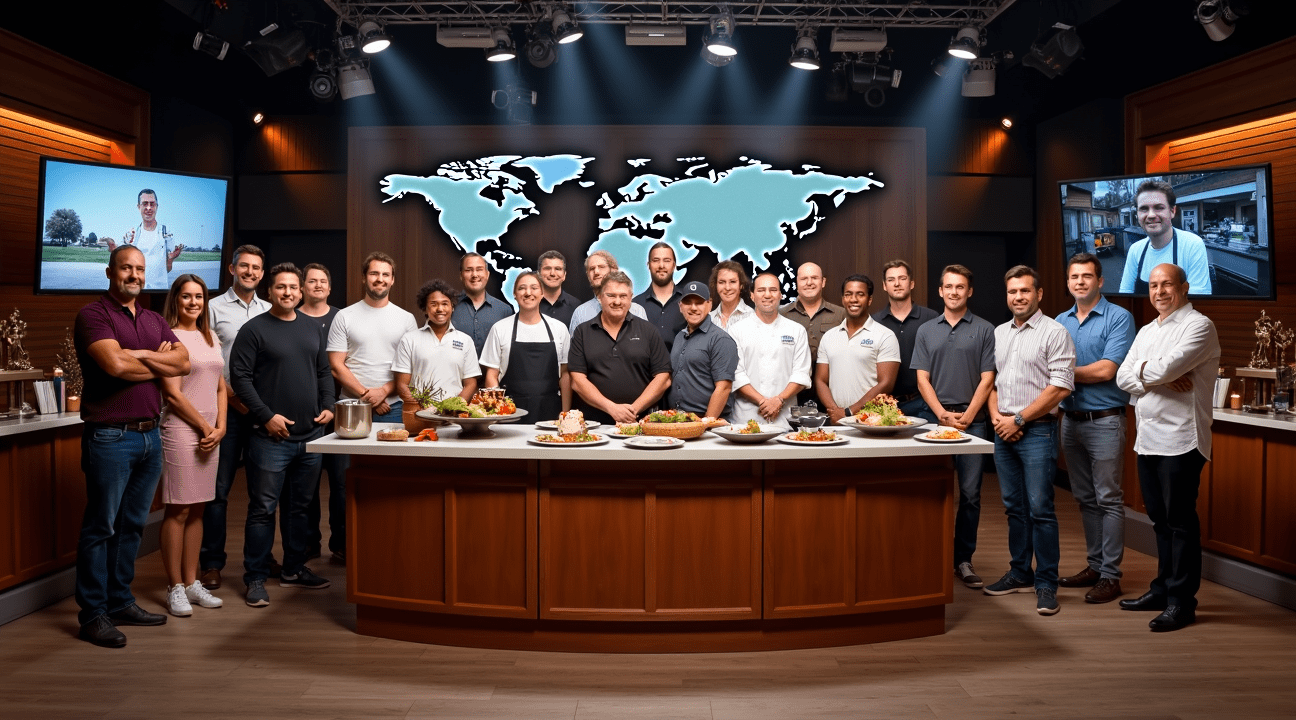
Sources:
CTV Delivers a Fresh Serving of MASTERCHEF CANADA for 2025-26 Season with Casting Now Open (Banijay/CTV)
FOX Renews MasterChef, Cooking Up 15th Season (Banijay Americas)
MasterChef (American TV series) (Wikipedia)
Future Chefs Challenge | K12 Schools (Sodexo)

